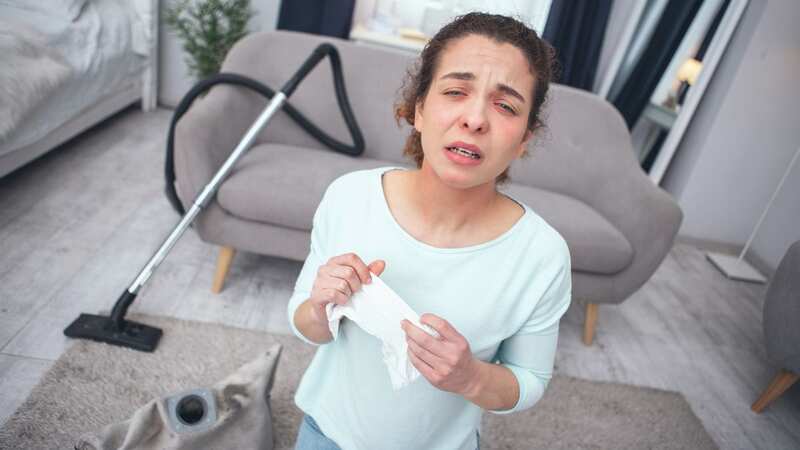Dust in your home could be making you ill - here's what you need to know
Is the dust in your home making you feel unwell? It might be.
It's tough to keep your house totally free from dust, and it can seem like a dull task. But, that dust on your shelves and along your skirting boards could be harming your health. Dust is like pollen; it can cause allergies. Those little dust bunnies hiding around your house might be causing you health issues without you knowing.
If you're thinking about doing a big clean, your lungs and eyes might be very happy with you.
Dust can be a pain to deal with
Nicola Alexander-Cross, an eye expert and co-founder of Peep Club, says hard places to get dust include "the kitchen or bath/shower since it's where we spend a lot of our time and because of the added humidity. And after that, the bedroom especially if sheets aren't washed regularly enough," she explains to MyLondon.
 Subway diner taken to hospital seven minutes after biting into sandwich
Subway diner taken to hospital seven minutes after biting into sandwich
Emma Rubach, head of health advice at the charity Asthma + Lung UK, says dust is really tricky to get rid of in your house. She explained: "There's dust everywhere. Dust is usually the product of shedding skin from humans and pets, as well as dust found in soft furnishing, and even if you cleaned all the time, it would be really hard to get rid of it. This can become more a problem at certain times of the year, as first turning on your heating in October will trigger dust mites to mate, meaning there will be more in the house to cause an allergic reaction."
Some spots in your home might not get much cleaning, like where kids' toys are or stuff you only use once a year, like Christmas decorations. Keep this in mind if dust makes you sneeze or gives you other trouble.
Do you find yourself sneezing because of dust?
Being allergic to dust is pretty normal and it can make you sneeze, give you a runny nose, make your eyes water, and sometimes make you feel itchy. Dust can also make asthma problems bigger. If you already have lung issues or asthma, having a lot of dust around could make things tougher for you. You might cough more, feel like it's harder to breathe, and have more asthma symptoms than usual.
Ms Rubach explained: "It's actually really important if you know that you've got a dust allergy and that dust is triggering your lung health symptoms, to make sure you're regularly taking your prescribed medicine, because it's very hard to avoid dust unfortunately.
"Make sure you're ventilating your home, make sure you're cleaning but it's very difficult to get your home clear of dust so it's really, really important to make sure you're taking your medicines as prescribed. If you have asthma, it's really important to make sure that you've got a blue reliever inhaler, which will help you if your symptoms do flare up."
Your eyes can get irritated by too much dust
Dust can be a real pain, especially if it gets in your eyes. When you clean your house or use the vacuum cleaner, and your eyes start to feel itchy or look red, it might mean you're allergic to dust or just have sensitive eyes. Remember not to rub them, though, because that could scratch your eye and make it feel even worse.
If this happens, try putting something cool on your eyes or hop into a cool shower. Warmth can make things worse by making your blood vessels bigger. It's also a good idea to let fresh air into your house by opening the windows and to clean your eyes to get rid of any dust stuck to your eyelashes. If your eyes keep bothering you or it's getting worse, you should go see a doctor for help.
Read more similar news:
Comments:
comments powered by Disqus


































